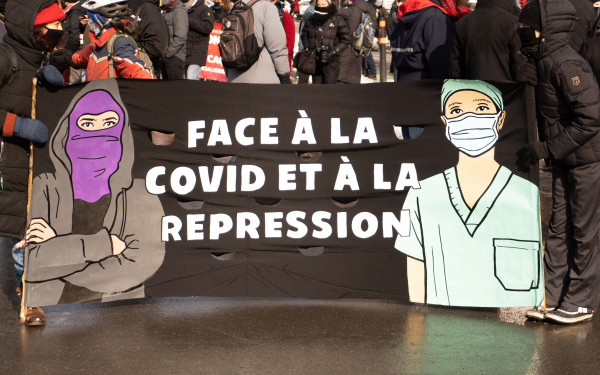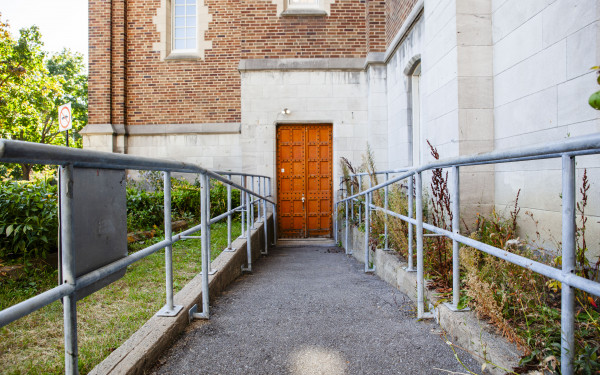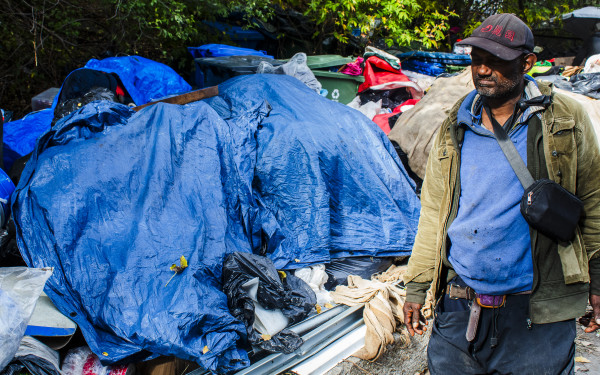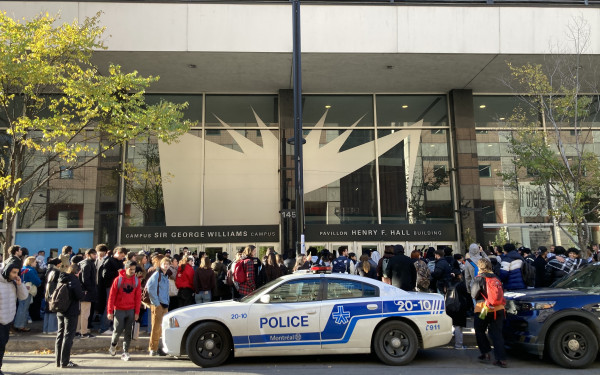Concordia safety personnel needs to back off
Harassing students for carrying a Palestinian flag is unacceptable
In June 2024, during the opening remarks of my convocation ceremony, Israel’s genocide of Palestinians was presented by co-chancellor Gina Cody as an issue of “political polarization."
A number of students, including myself, planned to cross the stage carrying a Palestinian flag to denounce Concordia’s affiliations with Israeli institutions and its investments that fund the Israeli occupation. I tucked my flag into my gown and waited while we were corralled through Place des Arts.
Just before walking onto the stage, a non-uniformed man asked me if I had anything hidden under my gown. Before I had the chance to respond, he reached into my gown without my consent and forcibly removed the Palestinian flag that I was holding there.
I was left to walk across the stage feeling stunned and enraged. This violation of my privacy and bodily autonomy effectively ruined my experience at convocation, and it will impact my sense of safety on campus moving forward.
Unfortunately, I am not the only graduate who was made to feel this way. It has come to my attention that this same scenario happened to a significant number of graduates at several of the convocation ceremonies throughout the week. For many students, and especially those who have experienced sexual assault or identity-based violence, these were traumatizing experiences.
While it is true that graduates were told that any unapproved items would be confiscated by security, the harm caused by these violations is in no way commensurate to any hypothetical harm that could have been caused by peacefully crossing the stage with a flag.
Following the convocation, I contacted Darren Dumoulin, director of Campus Safety and Prevention Services, who asked that I send him an email summarizing what had happened that night. In his reply, Dumoulin admitted that “the vast majority of articles confiscated were harmless.”
He told me he had spoken with his team and would be “debriefing with the convocation organizers and reviewing how best to address the issue of unauthorized objects,” and that he would “keep [my] comments and concerns top of mind when [they] are planning for these events.” He did not, however, indicate whether security staff were authorized to search graduates without their consent. Dumoulin planned “to have a woman as part of the team to hopefully mitigate some of the issues [I had] raised.”
Personally, I think this is a concerning instance of tokenism. It transfers part of the organization’s responsibility for implementing policies that uphold the principles of equity, diversity and inclusion onto marginalized staff members.
I requested that Dumoulin issue a statement summarizing his team’s debrief and the decisions that were made about how best to address the issue of unauthorized objects. This request was denied and Dumoulin was “not sure what else [he] can offer at this stage.” It is revealing and quite telling that Concordia’s security service does not have a clear protocol for handling reports of malpractice by security personnel.
Concordia students have a long history of supporting movements for social justice, and we had hoped to use our platform to celebrate this. It is ironic that the lessons I learned about care, solidarity and social justice with mentors and peers at the university have not informed the institution’s policies and practices.
We are faced with a settler-colonial culture of repression as the crises of capitalism intersect and converge with increasing visibility. What gives me hope, though, are the concrete efforts of community members to self-organize and mobilize around principles of care and solidarity.
This article originally appeared in Volume 45, Issue 1, published September 3, 2024.

_900_600_90.jpg)





